
Introduction
The production of plastics at present contributes around 4-8% of global oil consumption and statistical data indicates that this figure is anticipated to rise to 20% by the year 2050. The substantial growth of plastics is because of their durability, affordability, favorable strength-to-weight ratios, and contribution to simplifying day-to-day life. India generates about 3.4 million tonnes of plastic waste annually, of which about 30% is only recycled. The COVID-19 pandemic has increased the usage of single-use plastics (not less than 120 microns), primarily in the form of personal protective equipment which leaves a large volume of plastic waste leading to great environmental threats. Landfilling has been used extensively for end-of-life plastic management. This common method demands extensive space, brings adverse effects, and contaminates the surrounding soil. In aquatic environments, plastics undergo degradation into microplastics through the combined actions of waves, sunlight, and wind. More than 100 aquatic species from mussels to fish, and shrimp have shown the presence of microplastics. Therefore, the development of ecofriendly plastics holds great significance in environmental sustainability.
Microplastics: an alarming issue
Plastics are the most ubiquitous marine debris found in Seas and Oceans. Plastics with less than five millimeters in size are called “microplastics”. Microplastics emerge from different sources, including larger plastic debris that eventually degrades into smaller particles. Microbeads are microplastics of less than one millimetre manufactured from polyethylene plastics which are added as exfoliants to beauty and health products. These minute particles penetrate through the filtration system and end up in aquatic bodies, posing a great threat to marine ecosystems.
This story is from the MARCH - 2024 edition of Food & Beverages Processing.
Start your 7-day Magzter GOLD free trial to access thousands of curated premium stories, and 9,000+ magazines and newspapers.
Already a subscriber ? Sign In
This story is from the MARCH - 2024 edition of Food & Beverages Processing.
Start your 7-day Magzter GOLD free trial to access thousands of curated premium stories, and 9,000+ magazines and newspapers.
Already a subscriber? Sign In

Therapeutic Use Of Indian Winter Cherry (Ashwagandha)
Ashwagandha is one of the most important herbs in Ayurveda, which is a traditional form of alternative medicine based on Indian principles of natural healing. Ashwagandha is a small, woody shrub in the Solanaceae family that grows about two feet in height.
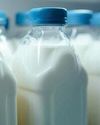
The Dairy Chain Revolution: Ensuring Freshness and Efficiency
Dairy products are an integral part of the food processing industry, forming milk, cheese, yogurt, and butter are highly perishable and demand meticulous care to preserve their quality and safety throughout their journey from farm to consumer.
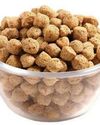
Plant-Based Proteins from Soybean: A Comprehensive Exploration
Introduction - In recent years, the global food landscape has witnessed a remarkable shift toward plant-based diets, driven by a growing awareness of health, environmental sustainability, and ethical considerations.
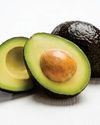
Avocado: The Green Ally in the Fight Against Diabetes
In a world inundated with processed foods laden with excessive sugars, salts, and artificial additives, rates of diabetes across the world have been rising over the past decades link.

Inspection Technology from KHS: Precision and early detection for holistic line thinking
KHS GmbH continuously develops and modernizes its inspection technology.
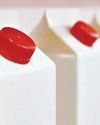
Packaging for the Future: How Aseptic Solutions are Transforming the Dairy Industry
Introduction - The Dairy Aseptic Packaging Market T is a dynamic and transformative sector within the rapidly evolving food and beverage industry.

Sidel introduces its breakthrough bottle washer with powerful dual technology - Hydra Ultrasonic
With beverage bottlers requiring a solution that reduces production costs while improving their environmental footprint, Sidel has launched its new bottle washer which combines chemical and ultrasound technology for the highest performance. Sidel will unveil Hydra Ultrasonic for the first time at the international trade show, BrauBeviale.
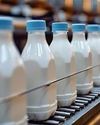
Revolutionizing Dairy Packaging: Technology & Innovations Shaping the Future
Dairy packaging plays a vital role in maintaining the quality and safety of a wide variety of products, including milk, butter, cheese, and yogurt.

Proost: Brewing Passion, Driving Innovation, Redefining Quality
In an exclusive conversation Mr. Tarun Bhargava, Co-Founder & CEO of Proost, speaks about the brand's inspiring journey, its unique approach to brewing, and the innovative strategies driving its success. From Proost's commitment to quality and sustainability to its adaptability in a dynamic market, Tarun shares insights into what makes Proost a standout in the beverage industry.

Non-Alcoholic Beverages: A Booming Industry Across Global Markets
The global non-alcoholic beverage market has been expanding steadily, with an estimated value of over USD 1 trillion as of 2023. This growth is expected to continue, fueled by a shift in consumer preferences toward healthier and more mindful consumption habits. The market encompasses a variety of products, including non-alcoholic beers, soft drinks, juices, and functional beverages like energy drinks and flavored waters.